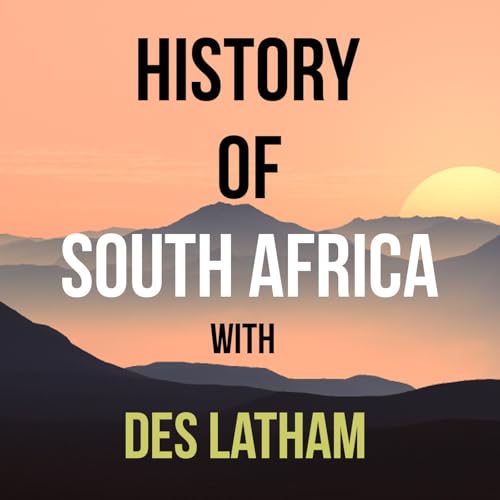
Episode 240 - Carnarvon’s Confederation, a Pre-scramble for Africa Geopolitical Mashup & Free State Ships
Failed to add items
Sorry, we are unable to add the item because your shopping cart is already at capacity.
Add to basket failed.
Please try again later
Add to Wish List failed.
Please try again later
Remove from Wish List failed.
Please try again later
Follow podcast failed
Unfollow podcast failed
-
Narrated by:
-
By:
About this listen
Part of this story is a continuation of the Langalibalele Affair in Natal which had created the perception that the authorities there were unable to cope. This provided an opportunity for Colonial office back in England to consider radical moves like forcing through a Confederation of South African colonies. Throughout the 1870s, Lord Carnarvon the British Secretary of State for the Colonies attempted to unite both the colonies and the Boer Republics into a self-governing — settler self-governing — dominion under the British flag.
This was a somewhat grandiose scheme and there’s a heady debate amongst historians about why Carnarvon tried to do this. We’re going to take a closer look at what was going on internationally and how South Africa factored into this global picture because its part of the story. The concept of a confederated South Africa was obviously opposed by the Boer Republics. More significantly, it was also opposed by the Molteno Administration of the Cape Colony which was the biggest and the richest South African state by far. Liberal humanist historians believe Carnarvon wanted confederation to protect blacks from the colonials - but that’s a shallow version of events.
It was in Natal where the largest portion of the white population favoured confederation but even there lieutenant Governor Chilly Pine described an ‘apathy and indifference’ to the policy by some.
John X Merriman who was a member of Molteno’s cabinet said
“The fact is that the cry for Confederation is purely an extraneous one, born in the brain of Lord Carnarvon, local prejudice and local jealousy tending the other way…”
Molteno and his Merriman were focused on infrastructure, work had begun on the Cape Parliamentary buildings in 1874, government funding of education was legislated, and the Molteno Government also established the South African public library system.
Nevertheless, in other circles in South Africa the call for Federation was growing — take the merchants of Port Elizabeth and a large section of English-speaking Natalians for example. With regard to the Port Elizabethans, the easterners as they were known, it was as matter of being dominated by western based politicians — western as in Western Cape just for clarification.
Natal had yet to receive responsible government, unlike the Cape. Given the various political currents surging about the region, why did Carnarvon pursue the idea of Conferederation so aggressively?
Theophilus Shepstone could be one reason. The Veteran of Natal’s Native Affairs had met Carnarvon and converted him to what historian RL Cope calls an instrument of the sub-imperialist forces emanating from Natal.
There was as paradox here. The tiny white minority of Natal was fearful of the black majority and therefore harboured impulses to bring further tracts of African territory under British Control. It was this demographic imbalance that drove the colonials voice, but it was a contradictory position for any imperial government to take. Why support a tiny group — unlike in the Cape which had a vibrant economy and was dominated by settler interests both financially and demographically. For Natalians, the perpetual labour shortage seemed insurmountable, maybe a forced union of some sort would open up other colonies where labour could be exploited.
With both Carnarvon and Shepstone believing in Confederation, trifling over black labour appeared to be the least of their challenges. Furthermore, in Port Elizabeth, a powerful voice supporting their position was also developing rapidly.
And he had cash to burn.
That was founder of the Standard Bank, John Paterson. As a leading Port Elizabeth merchant, the Cape Argus described him as “A great apostle of confederation..”
No reviews yet
In the spirit of reconciliation, Audible acknowledges the Traditional Custodians of country throughout Australia and their connections to land, sea and community. We pay our respect to their elders past and present and extend that respect to all Aboriginal and Torres Strait Islander peoples today.


